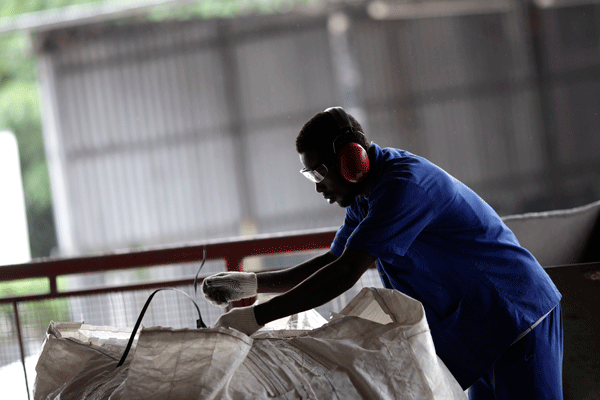VATICAN CITY (CNS) — Immigration, religious liberty and the new evangelization were among the topics of discussion for bishops from California, Hawaii, Nevada and Utah during their “ad limina” visits to the Vatican, which ended April 21.
“We come here with a sense of working together with the Holy Father,” said Bishop John C. Wester of Salt Lake City. “There’s a sense of humility; it’s not like we know everything or we’re going to want it our way.”
The process, which can include “fraternal correction” of bishops who have somehow erred in their ministry, “prevents us from becoming insulated,” Bishop Wester said.
The visits are formally called “ad limina apostolorum,” which means “to the thresholds of the apostles” Peter and Paul, who were martyred in Rome. As well as concelebrating Masses at Rome’s four major basilicas, visiting bishops meet with Pope Benedict XVI to report on the state of their dioceses, and with Vatican officials to discuss issues of common concern to local churches and the Holy See.
Among the most pressing areas of concern for church leaders from this region was immigration. Cardinal Roger M. Mahony, retired archbishop of Los Angeles, said he came with a specific request for Pope Benedict: a new version of “Exsul Familia,” Pope Pius XII’s apostolic constitution on migration, published 60 years ago this year.
Archbishop Jose H. Gomez of Los Angeles said that although Catholic social doctrine recognizes the right of nation-states to defend their borders, Scripture and Catholic tradition teach that the movement of people is a “part of creation, that God gave the earth to all us.”
“The United States is a country of immigrants, and each wave of immigration has been a blessing,” the archbishop said.
Noting that his own ancestors came to what is now the state of Texas in the early 19th century, Archbishop Gomez, who was born in Mexico, said that “there has always been a relationship between the two countries, and the contribution of Latinos to … the culture of the United States is very important and has always been very important.”
That legacy gives him hope that government leaders will find the “political will” to solve their current conflicts on the issue, he said.
Like their brother bishops who made “ad limina” visits earlier this year, the Western bishops discussed concerns about religious liberty in light of the Obama administration’s Health and Human Services mandate, which would require the private health insurance plans of most Catholic institutions to cover surgical sterilization procedures and artificial birth control, in violation of the church’s moral teaching.
The mandate exemplifies a creeping government intrusion in the life of the church, said Cardinal Mahony, who called unconstitutional the White House’s attempt to define which bodies may enjoy the right of conscience objection.
“Rather than exercising our rights and liberties according to the constitution as guarantees, the government is now going to give us those by way of exception,” the cardinal said.
The bishops also discussed plans for this fall’s Synod of Bishops on the new evangelization, an initiative that Pope Benedict has made a priority of his pontificate.
Bishop Joseph A. Pepe of Las Vegas described his diocese as a challenging yet encouraging mission field in the movement to evangelize secular culture.
“The glitter of the city has a tendency to have a powerful influence on (Catholics), in the sense that I think it forces them to be more focused on the church, but also at times it is a big temptation,” Bishop Pepe said. “They really struggle in those areas, and we try to meet that through our parish outreach and through trying to give them a focus into keeping on the straight path.”
— By Francis X. Rocca, Catholic News Service







